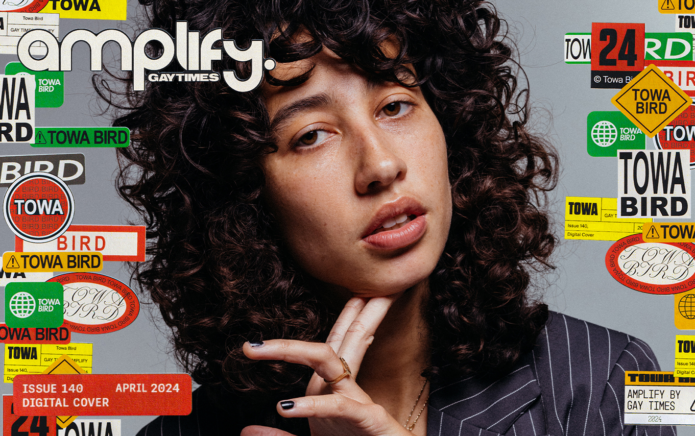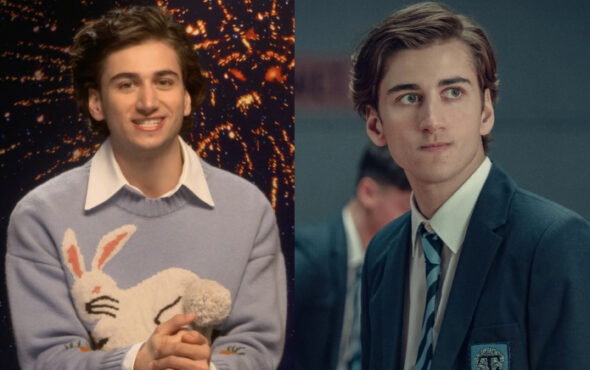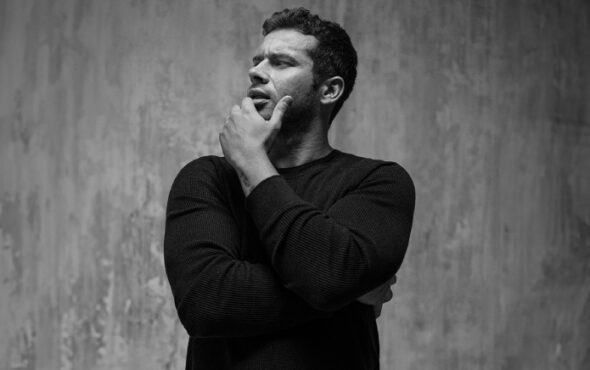
In 2017, Halsey released ‘Strangers’ featuring Lauren Jauregui, as a single off of her second album. The song happened to be the first love song sung by two women to make it to Top 40 radio. When that song came out, I was in high school, scrolling through Tumblr and still trying to reconcile whether I liked girls or if I had just imagined those feelings for attention. Before then, I had always been afraid of labels and the scrutiny that came with it. But to hear two bisexual women be unapologetically queer and be reminded that they belonged in those spaces meant a lot.
As an extremely online kid, a lot of my first experiences with my identity and my queerness were explored through the internet. I’d try to find gay subtext in Taylor Swift lyrics and dissect Miley Cyrus’ music videos wondering if they were also experiencing the same conflicting feelings I did.
Back then, pop songs still painted a very harmful picture of bisexuality, one that was supposed to be hidden or that existed solely for the male gaze. Take two of the biggest pop songs from the mid-2000s, ones that my iPod Nano rinsed on repeat.
Katy Perry’s ‘I Kissed A Girl’ is probably one of the most infamous depictions of the harmful stereotypes of bisexuality. Its lyrics presented same-sex attraction as “experimental games” that she hoped “her boyfriend won’t mind.” Then, there was ‘Poker Face’, a song that depicts attraction to women as something to keep secret. It’s a song that Lady Gaga, who has long been defining and shaping queer culture, still needed to use as proof to validate her own identity as a bisexual woman. As a tween, understanding bisexuality felt like an impossible task. According to the songs on the radio, if I liked girls and boys, it had to be for attention.
As I entered high school, pop music got queerer. Hayley Kiyoko’s ‘Girls Like Girls’ music video dominated Tumblr feeds everywhere and definitely altered my brain chemistry, but it still felt impossible to reconcile what I was feeling. Before Demi Lovato came out as bisexual in 2017, they released ‘Cool For The Summer’ which came under flak for reiterating the tropes that dominated pop culture at the time of bisexuality as taboo and a seasonal fling. Other songs like Janelle Monae’s ‘Q.U.E.E.N’ in which they wonder: “Am I a freak because I love watchin’ Mary? (Maybe)” also reiterated the idea of bisexuality as something “so wrong it’s right.”
Thankfully, since then, both artists have come into their queerness, rejecting the constant surge of shame and demand to “prove one’s identity” that bisexual people are often exposed to. Demi Lovato changed the controversial “don’t tell your mother” lyrics in the summer anthem ‘Cool For The Summer’ so that queer fans could scream out “Go tell your mother” at shows and Janelle Monae, who’s since come out as nonbinary, has just released a new album full of queer bops celebrating a feminist utopia where people can just be themselves. Shame is out of the picture now. And it’s amazing to see.
I feel incredibly proud to have been on the cusp of a bi-revolution, one that destroyed the idea that bisexuality was just girls with sharp eyeliner who listened to ‘Sweater Weather’. Over the past few years, bisexual artists have released songs that allow us to celebrate who we are and the fact that we don’t owe anyone anything.
Songs like Halsey’s ‘Strangers’ and Frank Ocean’s ‘Chanel’, dubbed the most important song in the world in 2017, helped pave the way for a new generation who can simply exist as queer people without having to justify whether or not they’re “bi enough.”
I’m glad that I’ve been able to explore my sexuality and my feelings enough to be confident in my bisexuality, but I know that the internet and the music that soundtracked my teens helped me carve that path. To be bisexual still means reconciling with feelings of loneliness and “double discrimination” which results in higher rates of mental health issues. So, to have songs on the radio remind you that you are worthy is so important. Rina Sawayama, whose song ‘Cherry’ reconciles those feelings, even admitted how important artists like Halsey and Demi Lovato were in allowing her to create her queer art.
Music has always been there to help me navigate my feelings, and as bisexuality becomes almost as common as being gay or lesbian, I’m so happy that younger generations no longer have to rely on subtext or harmful tropes that fetishize the bisexual identity to feel seen. Artists like Raveena, Omar Apollo, or even Ice Spice can deliver tongue-in-cheek lyrics about loving any gender, proudly and unabashedly. Bisexuality comes in all different shapes and sizes, and now we have a whole catalogue of songs that can help us navigate our feelings.
This year, I saw Halsey perform during Pride month. There’s this moment in their live shows where she’ll ask the crowd if they’re a member of the LGBTQ+ community. She’ll ask them if they feel proud and if they feel seen. I’ve been going to Halsey’s shows for years, before I’d built up the confidence to feel proud of my identity. But, every time I hear the first few notes of ‘Strangers’ and she states “this one’s for us,” it’s a reminder that no matter what other people might say, I belong.



